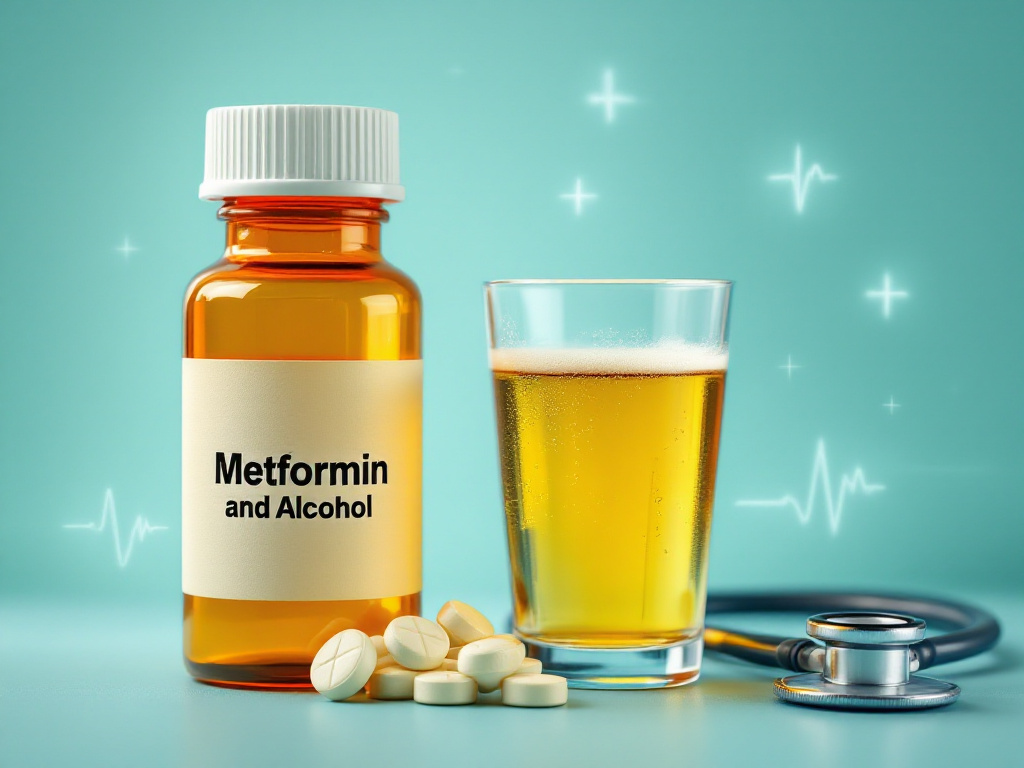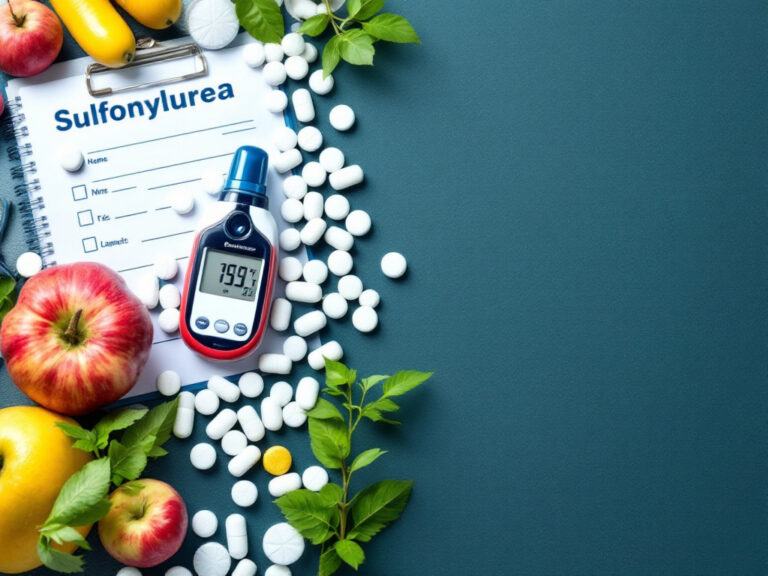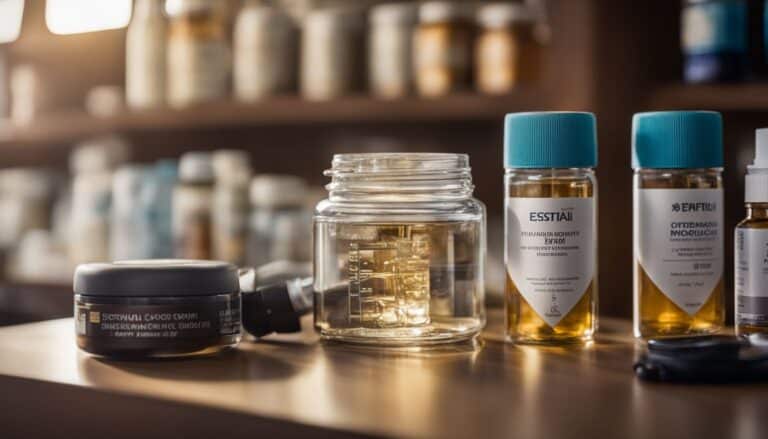Metformin and Alcohol: Is It Safe to Drink While Taking Metformin?
If you’re wondering about metformin and alcohol, you’re not alone. Plenty of people taking metformin for diabetes or prediabetes want to know if they can safely sip a cocktail or beer. The short answer is yes, sometimes, but with caution. This ultimate guide walks you through the essentials, risks to watch out for, and steps you can take to drink responsibly or skip the booze entirely.
Get The Basics
What Is Metformin?
Metformin is a widely used medication for managing type 2 diabetes. It helps your body respond better to insulin, which lowers blood sugar levels. Doctors may also prescribe it for certain cases of gestational diabetes or even to improve fertility in individuals with polycystic ovary syndrome (PCOS). If you’re curious about dosing details, you might check out metformin dosage.
Why Alcohol Matters
Alcohol can lower your blood sugar, sometimes for up to 24 hours after you drink. For most people, that’s not a huge problem. But when you’re already taking a glucose-lowering medication, combining alcohol with metformin may increase the risk of hypoglycemia (low blood sugar). Both metformin and alcohol also place extra stress on your liver, so it’s important to understand how much is too much.
Recognize The Potential Risks
Lactic Acidosis
One rare but dangerous side effect of metformin is lactic acidosis. Basically, lactic acid can build up in your blood, and alcohol can make that buildup more likely by slowing your liver’s ability to clear out lactate. According to Medical News Today, this complication affects about 1 in 30,000 people on metformin, but it’s still something to take seriously.
If you notice symptoms such as unusual fatigue, breathing difficulties, or muscle pain, seek medical attention right away. While lactic acidosis is rare, it can escalate quickly and cause severe health issues.
Hypoglycemia from Alcohol
Drinking lowers blood sugar, so it’s an extra concern when you’re on a medication that already aims to reduce glucose levels. Symptoms include:
- Shakiness
- Dizziness or confusion
- Sweating
- Irritability
- Slurred speech
Severe hypoglycemia can even lead to seizures. If you suspect you’re experiencing dangerously low blood sugar, grab a quick source of carbs like fruit juice and call a medical professional if symptoms don’t improve.
Follow Helpful Drinking Guidelines
Understand Alcohol Units
Different countries describe alcohol intake in units. For instance, in the UK, you might hear about staying within 14 units of alcohol per week. According to Medical News Today, that often translates to around two units a day. One small glass of wine or one bottle of beer is roughly one to two units, depending on strength.
Plan Before Drinking
If you decide to have a drink, consider these tips:
- Eat a balanced meal beforehand.
- Check your blood sugar more frequently—before, during, and after drinking.
- Stick to moderate amounts, and know your own limits.
- Keep quick-fix carbs handy in case your blood sugar drops.
You’ll also want to tell your doctor if you’re a regular drinker or if you binge drink occasionally, because they might need to adjust your metformin plan.
Spot Common Warning Signs
Even if you’re drinking moderately, it’s smart to be on the lookout for early indicators that your body isn’t handling metformin plus alcohol well. Watch out for:
- Headaches or severe fatigue
- Nausea or upset stomach
- Difficulty breathing or chest discomfort
- Feeling unsteady or having trouble focusing
If these pop up, it’s a hint you should slow down or stop drinking. Never ignore what your body is telling you—especially when it comes to diabetes medications.
Manage Your Vitamin Levels
Metformin, especially when combined with regular alcohol use, can lower vitamin B12 in some people. According to Medical News Today, a deficiency in B12 may lead to fatigue and nerve damage. You can check your levels with your healthcare provider, and if needed, they may suggest a supplement or dietary tweaks. If you’d like more insight into potential side effects of metformin, see side effects of metformin.
Stay Safe And Monitored
Balancing diabetes management with occasional alcohol consumption is possible, but it takes some extra care. Below are a few ways to stay on top of your health:
- Talk To Your Doctor
Your healthcare provider knows your medical history best. If you’re unsure about your tolerance for occasional drinks, get their advice. - Monitor Blood Sugar Often
A quick fingerstick test can stop small problems from becoming big ones. - Keep A Rescue Plan
If you’re prone to low blood sugar, carry glucose tablets or a snack. Share your plan with a friend or family member so they know what to do in an emergency. - Substitute Or Skip
It’s not a bad idea to swap that alcoholic beverage for a tasty mocktail. This is especially true if you’re dealing with additional risks like liver issues or an increased chance of hypoglycemia.
If you’ve been looking into other diabetes treatment options or want to know about different classes of meds, you can explore sulfonylurea or check out how newer drugs compare, such as jardiance side effects or trulicity side effects.
Key Takeaways
- The combo of metformin and booze can heighten your risk of low blood sugar and rare complications like lactic acidosis.
- Regularly check your blood sugar, especially if you decide to drink.
- Watch for symptoms such as confusion, dizziness, or unusual fatigue, and get help quickly if they worsen.
- Keep an eye on vitamin B12 levels, since metformin (and alcohol) can impact absorption.
- Always involve your doctor in decisions about alcohol, because they might adjust your dose or suggest safer alternatives.
Staying informed is one of the best ways to maintain control over your health. Consider trying a few alcohol-free days to see how you feel. And remember, if you need more specifics about your medication, you can explore related resources like metformin weight loss or metformin dosage.
By staying mindful, planning ahead, and communicating with your healthcare team, you’ll stay in the driver’s seat regarding your health choices—even if you indulge in a little celebratory toast now and then. Always put your well-being first, and when in doubt, seek professional medical advice.








Leave a Reply